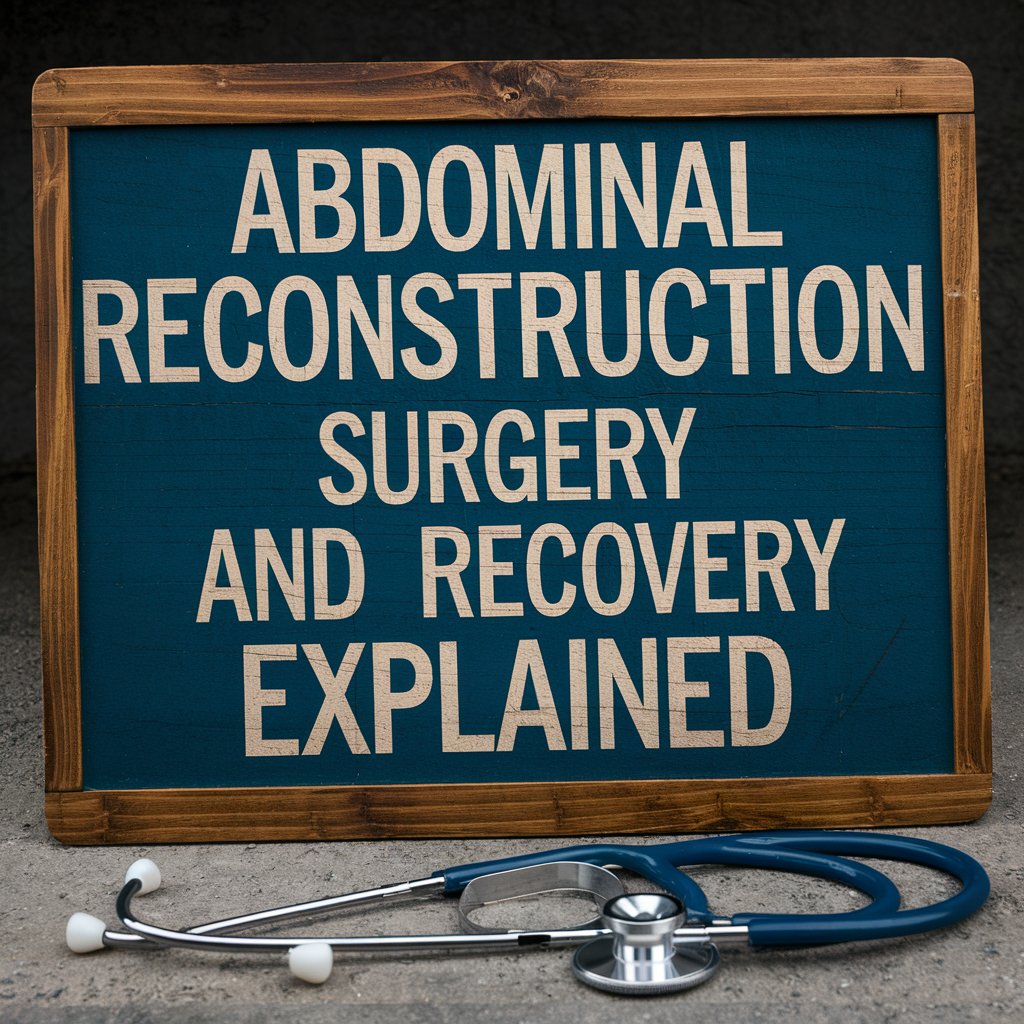When it comes to restoring the function and appearance of your abdominal area, abdominal reconstruction surgery can be a viable solution. This procedure is often necessary for individuals who have experienced significant trauma, undergone multiple surgeries, or need repair due to congenital anomalies. Understanding the ins and outs of this procedure is crucial for anyone considering it.
Firstly, abdominal reconstruction is a complex surgical process. It involves repairing and reconstructing the muscles, skin, and other tissues of the abdominal wall. This surgery can also address issues such as hernias or damage from previous surgeries. It’s a procedure that requires precision and expertise from skilled surgeons.
In this blog, we’ll explore the different aspects of abdominal reconstruction, including the reasons for undergoing the procedure, what to expect during surgery, and the recovery process. We’ll also discuss vital considerations to help you make informed decisions about your health and well-being.
Why Consider Abdominal Reconstruction?
There are several reasons why someone might consider abdominal reconstruction surgery. For many, it is a way to restore function and aesthetics after an injury or medical condition. This surgery can help individuals regain confidence and improve their quality of life.
Abdominal reconstruction is often recommended for those who have experienced trauma or undergone multiple surgeries that have weakened the abdominal wall. It’s also a solution for people born with congenital anomalies affecting their abdomen. Regardless of the reason, the ultimate goal is to restore normal function and appearance.
It’s important to consult with a qualified surgeon to determine if this procedure is right for you. They can assess your situation and recommend the best course of action based on your specific needs and health conditions.
Preparing for the Procedure
Preparation is a crucial step in the abdominal reconstruction process. Your surgeon will provide specific instructions to ensure you’re ready for the surgery. Following these guidelines is essential for a smooth and successful procedure.
Before the surgery, your medical history will be thoroughly reviewed. This includes discussing any medications you’re taking and potential allergies. Your surgeon may also require you to undergo some tests to ensure you’re in optimal health for the procedure.
Remember to discuss any concerns or questions with your surgeon prior to the surgery. Understanding what to expect can help ease anxiety and ensure that you’re mentally and physically prepared for the procedure.
The Surgical Process
The surgical process of abdominal reconstruction involves intricate techniques to repair and restore the abdominal wall. Each procedure is tailored to meet the unique needs of the patient, ensuring effective results.
During the surgery, your surgeon will work to repair damaged tissues, muscles, and skin. This may involve the use of grafts or mesh to reinforce the abdominal wall and support healing. The procedure can vary in duration depending on the complexity of the reconstruction required.
It’s important to note that while the surgical process aims to restore function, cosmetic improvements are also considered. This is particularly the case when addressing concerns such as tummy tuck scars that may arise from previous surgeries or trauma.
Post-Surgery Expectations
After the surgery, it’s normal to experience some discomfort and swelling. Your healthcare team will provide pain management strategies to help you stay comfortable during the initial recovery phase. It’s crucial to follow their instructions closely to ensure a smooth healing process.
You’ll likely need to wear a compression garment to support the abdominal region and minimize swelling. This garment helps promote healing by keeping the area stable and protected. Additionally, your surgeon will advise on how to care for the incision sites to prevent infection and promote proper healing.
Patience is key during the post-surgery phase. While it might be tempting to rush the recovery process, taking the time to rest and heal properly will yield better long-term results.
Navigating Recovery
Recovery from abdominal reconstruction surgery can vary in duration depending on the individual and the complexity of the procedure. On average, it can take several weeks to fully recover. During this time, it’s essential to listen to your body and avoid any strenuous activities.
Your surgeon will provide guidance on when you can resume regular activities, such as light exercise and work. It’s important to gradually ease back into your routine and avoid putting undue stress on the healing abdominal area.
Seeking support from friends and family can also aid in your recovery. Having a strong support system can make the process more manageable and provide the encouragement you need along the way.
Long-Term Considerations
As you recover, it’s important to keep long-term considerations in mind. Maintaining a healthy lifestyle can significantly impact the success of your abdominal reconstruction surgery. This includes following a balanced diet, staying active, and attending follow-up appointments with your surgeon.
Your surgeon may also recommend specific exercises to strengthen the abdominal area once you’ve fully recovered. These exercises can help enhance the results of the surgery and improve functionality over time.
Remember, abdominal reconstruction is a collaborative effort between you and your healthcare team. By adhering to their recommendations and making positive lifestyle choices, you can achieve lasting results that improve your quality of life.
Conclusion
Abdominal reconstruction surgery is a significant procedure that offers individuals an opportunity to restore function and aesthetics to their abdominal region. Whether you’re considering this surgery due to trauma, medical conditions, or congenital anomalies, understanding the process and recovery is crucial.
By preparing adequately, following your surgeon’s guidance, and prioritizing your health during recovery, you can achieve successful outcomes. Remember to reach out to your healthcare team with any questions or concerns as you navigate this journey.
For those interested in exploring this procedure further, consulting with a qualified surgeon is the first step towards achieving a healthier, more confident you. Take control of your health and make informed decisions that can positively impact your future.





